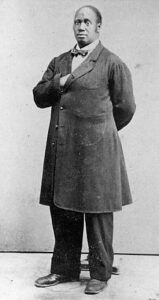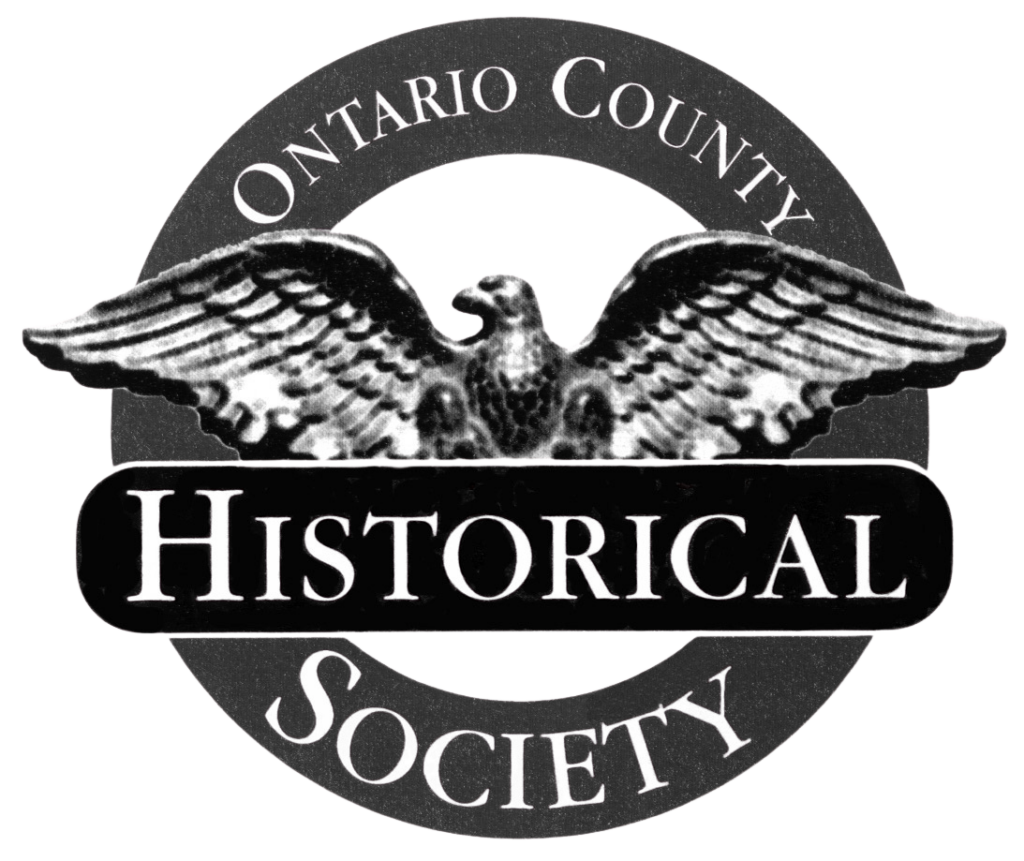People of Ontario County: Henry W. Johnson

Excerpt from Preston E Pierce’s A Tour Guide to Black History Sites in Canandaigua, NY.

A self-educated man of affairs, Henry Johnson was born in Ferrisburg, Vermont. His hometown was a center of abolitionist sentiment and an important junction on the Underground Railroad. When his father died, Johnson moved to Canandaigua about 1836 and got a job with James D. Bemis. Johnson undoubtedly learned a great deal in the print shop and book store of the most important published in western New York.
In 1849, Johnson purchased a substantial brick building where he operated a barber shop on Main Street, Canandaigua. Located next door to the Baptist church, it was right in the middle of the business district (At present time, the Pat Rini Rohrer gallery occupies that building). A few blocks away, on Coy Street, Henry Chesebro had his law office. Johnson began studying with Chesebro and was admitted to the bar in 1864. He was the first Black attorney in the Seventh Judicial District that includes Rochester.
A noted orator, Johnson was a popular speaker throughout the area. He was even invited to speak in the Vermont state capitol in 1864. He was a featured speaker at many “1st of August” Emancipation Day celebrations in the 1850s.
Early on, Henry Johnson became interested in the colonization movement that urged African-Americans to consider moving to Liberia in West Africa. On this issue he parted company with Frederick Douglass who rejected the concept. In 1865, Johnson emigrated to Liberia with his family. Greatly respected by the legal and business community, Johnson was asked to deliver a farewell address in Bemis Hall.
Johnson established a coffee plantation in Liberia and practiced law as well. He became involved in the volatile politics of that nation and served briefly as Attorney General. Johnson’s letters were published in local papers and widely read.
